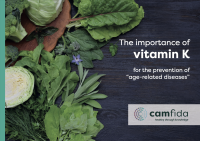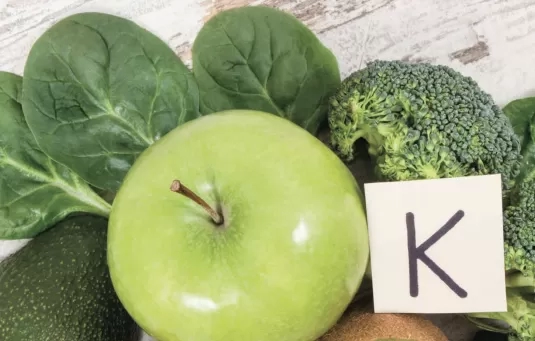Vitamin K: the prevention of “age-related diseases”
Vitamin K is a remarkable nutrient that has long received little attention because it was thought to be needed only for blood clotting, but it turns out to be essential for several important pro- cesses. Vitamin K is crucial for a healthy body, the functioning of all organs and the prevention of so-called “age-related diseases” such as cardiovascular disease, type 2 diabetes, osteoporosis, osteoarthritis, muscle wasting, neurodegeneration and cancer.

Request brochure




